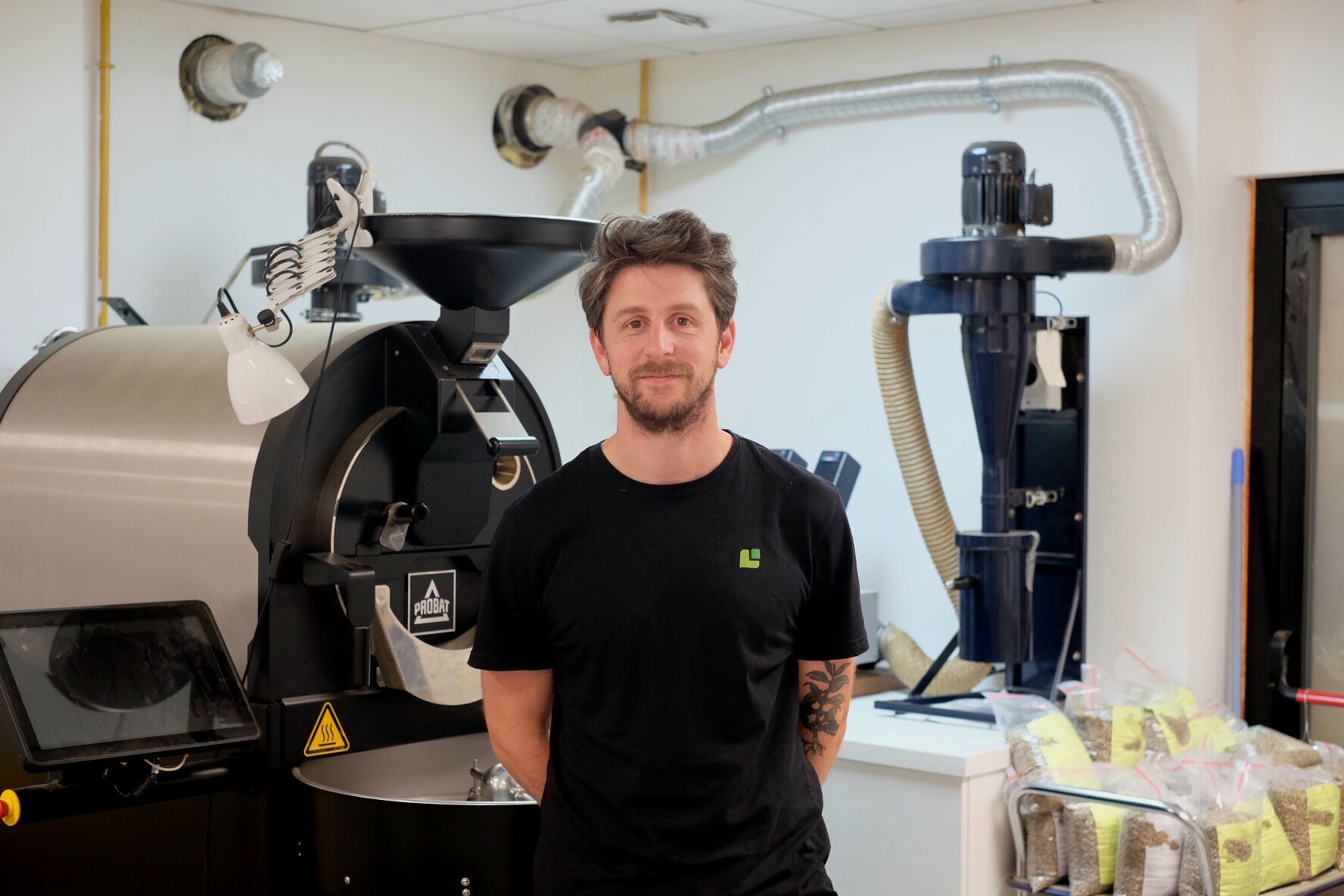
Meet Denis, Training Manager at Belco
Denis is in charge of the Belco Coffee School. If you'd like to join us for a course, whatever your level, he'll be the one to guide you through everything you've always wanted to learn and experience about coffee!
Hi Denis, what are you doing at Belco?
I'm in charge of theBelco Coffee School, where I give a number of training courses on coffee and roasting, both for our customers and internally, for all our employees and sales staff, who are in daily contact with the product and our customers.
What brought you to coffee?
Before being into coffee, I was doing a PhD in finance, with a teaching contract on the side. You could say that I was already in education!
But in 2015, I drank a coffee that disturbed me to the point where coffee became an obsession for me. It was a Yirgacheffe, roasted by Grégory, who is now in the Belco Quality team. I was also interested in the method. It was a chemex and for me, as someone who used to use a piston coffee maker, it was a revelation!
Shortly afterwards, I became a roaster at L'Alchimiste, in Bordeaux, for five years, from production to setting up quality control and buying green coffee.
What are the objectives of the training courses you provide?
The first objective is to increase the skills of our teams and our customers. Everyone needs to be able to ask questions about a purchase, about a coffee that they taste, from the selection of the green coffee to the roasting process.
Beyond this, the coffee sector is currently facing a number of challenges, including global warming and the economic and social issues linked to the coffee economy.
To keep abreast of these issues and move towards more responsible purchasing, we need to educate ourselves on a daily basis. And roasters also need to talk to their customers, and help them to understand just how complex coffee is.
I imagine that each customer has a different need when they come to a training course?
Yes, and that's why we've built a training programme that can evolve to meet everyone's needs. In roasting, and in coffee in general, there are very few truths. In all cases, there are only visions.
And the great thing about Belco is the diversity of our customers. We had to come up with general training courses alongside more specialised courses on tasting or roasting. Our training courses even include roasting support for championships such as the French Roasting Championship.
What is your vision of a good coffee today?
Good coffee is obviously good quality in a cup, but it's also a story and everything that went into getting it to us. It's the terroir, the variety, the process and the impact the producer has had. In fact, it's the whole process that leads to the quality of the cup.
What's important for me is to taste a coffee for what it is. Tasting a good, clean 83 is just as pleasant as tasting a great coffee rated 88. And, on this subject, I prefer to buy an 83 that I'm going to drink every day, from harvest to harvest, rather than an 88 where only the cup is exceptional. It's the idea of total quality.
And it's the same for roasting. I take just as much pleasure in tasting a super light roast, a medium or even a dark roast: they're just different roasting directions.
What do you think has changed most in the coffee sector since you started out?
There have been major developments in the post-harvest area, in processes, drying and fermentation. There's also a lot happening with the varieties. There have been Geisha, Pink Bourbon, Sidra... star varieties, with more experimental fermentations than the classic washed and plain varieties.
Today we're looking at infused coffee, with fruit added during the post-harvest process. We're pushing back the limits of the aromatic profile. That's one of the developments.
For me, the other development is in the 'project' and sustainability aspects of coffee, to make the sector ever more virtuous. We need to realise that coffee is not a product with unlimited availability.
Coffee is certainly an experiential product, but if we want to drink it for a long time to come, everything that surrounds coffee has become at least as important, if not more so, than the coffee itself.
As a trainer, what is the biggest coffee myth?
What brings us all together today is tasting. Tasting is at the heart of our industry. And the biggest myth about tasting is that it's a talent. But it's not! Tasting is work, training and questioning.
If you don't taste, you can't understand the complexity of a coffee, from the farm to the roasting and preparation. That's why I invite everyone to be curious, and to allow themselves to taste each coffee with the same passion!
Did you like this article? Share it with your community:
